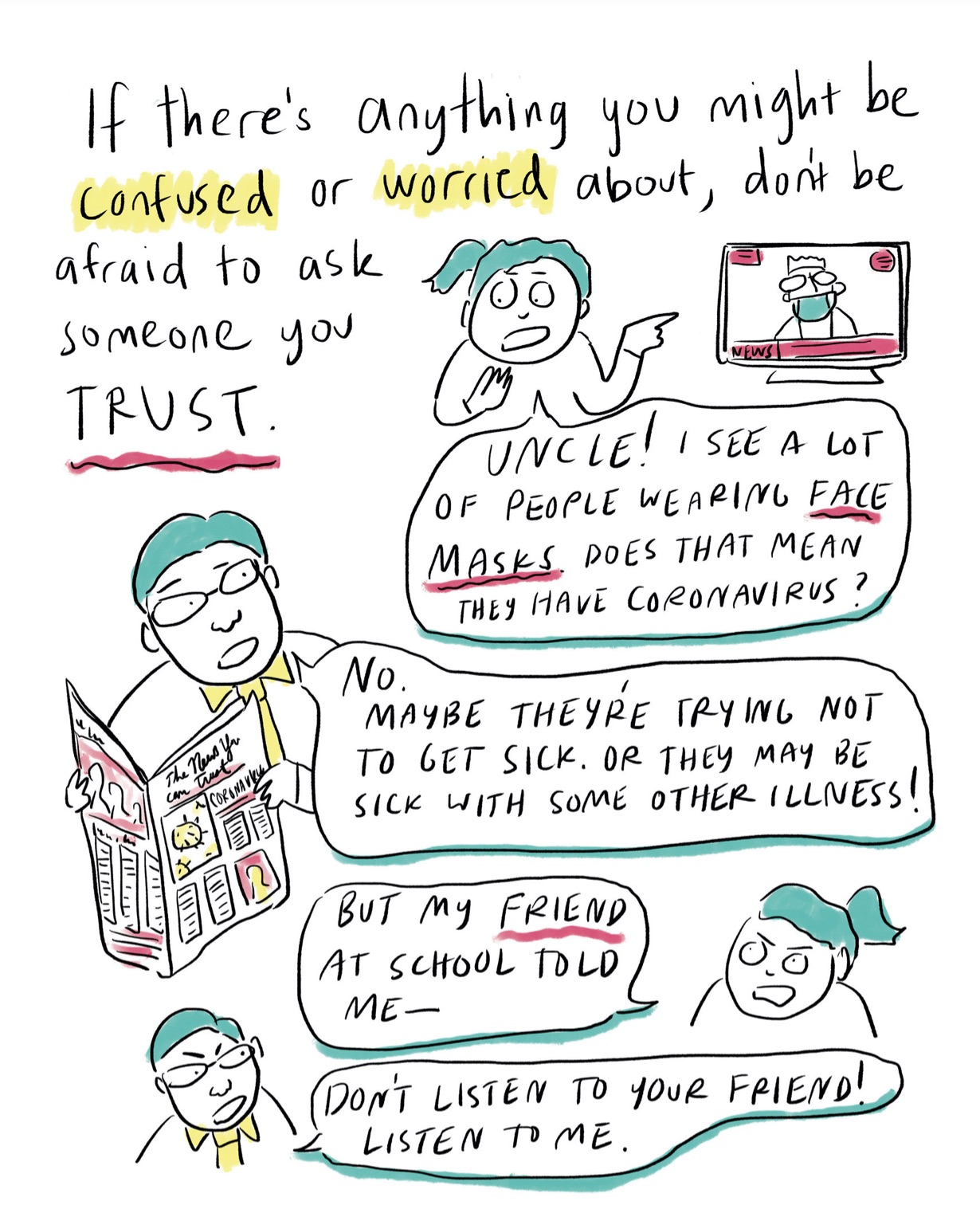Coronavirus canceling are impacting our kids in some really big ways, and we need to talk about it.

As the COVID-19/Coronavirus concerns have ramped up over the past couple of weeks, there are a lot of wise changes being made to help contain the spread and flatten the curve. All kinds of gatherings and conferences are being cancelled, there are huge cutbacks in air travel (and even train travel), and of course, an increasing number of schools are closing or moving to online learning around the country.
Which is to say the struggles we’re dealing with as parents go beyond the physical health concerns of contracting the virus.
I haven’t seem a lot of articles about it, but my social communities of parents are sharing such heartbreaking stories, that we might be forgetting that an epidemic like Coronavirus may not be hurting kids physically, but emotionally its been so tough on them.
I’m hearing stories about cancelled school trips that kids have saved up for and planned for years, spring break plans changed. Canceling a birthday party can be sad enough for a child, but how about a bar or bat mitzvah that a child has studied for for hours each week for many years?
One friend had to grapple with whether or not to take her 13-year-old son to see Hamilton after waiting for so long to get tickets. (Broadway is taking many precautions by the way, including stopping post-show “stage dooring.”) My friend Eliza’s tween son worked so hard to qualify for a Junior Olympics swim meet, and when it was cancelled, he said he’d “try not to cry.” Oof. Another friend in a similar position said that while her own child’s upcoming competition wasn’t cancelled, they would still opt not to go and she’s struggling with how to talk about it.
These aren’t “high class problems” by the way. All school-age kids have both social, academic, and extra-curricular events they look forward to.
I caught one Twitter user suggesting that kids just go outside and play, get some fresh air. Sounds great, right? Well maybe if you’re in the suburbs. There are 1.1 million kids in NYC public schools alone, and very few of us have backyards. And because of the implementation of social distancing tactics to slow down the spread of COVID-19, we are cautioned against going to parks and playgrounds for the very reason that lots of other people will be there.
So how do we handle this?
How to talk to our kids about changes to their lives during the Coronavirus epidemic
It’s easy for adults to see the big picture — we know that there will be more spelling bees, more opportunities to see pro sporting events, more trips, more violin performances. more birthday parties — but FOMO is so real when you’re a kid and we shouldn’t minimize the emotional toll it takes on kids.
That said, it’s remarkable how many articles focus on social media FOMO and leave it at that. Fortunately, I’ve found some great advice for when your kids are missing TKTKTKT
1. Help them understand the big picture.
Talk to them about what is happening, and why cancelling their event is for the greater good

If you need a basic way to explain Novel Coronavirus, which may help kids understand why their event is being cancelled, this wonderful Coronavirus comic from NPR, illustrated by Malaka Gharib (I Was Their American Dream) is fantastic. It’s designed to be printed and folded into a zine. I love that it’s straightforward, clear, and reassuring.
Older kids can look at infection disease specialist Dr. Siouxie Wiles’ animated GIF about flattening the curve, illustrated by Toby Morris. It can be found in this helpful article in The Spinoff, that explains the premise of containment and why it’s so essential to getting ahead of any health epidemic.
2. Let them feel how they feel.
Lisa Damour, one of our favorite parenting authors, has a terrific article in The NY Times on 5 ways to help ease anxiety in teens about Coronavirus. Her number one tip: Normalize anxiety.
I love that she writes, Adults can help young people appreciate that healthy anxiety has a purpose: It alerts us to potential threats and helps us move toward safety. “Feeling some anxiety,” we might say calmly, “makes sense right now. You’re having the right reaction to the emerging news about the coronavirus.
From there, her suggestions are to offer perspective (i.e. the health risk is low), shift the spotlight toward supporting others, find distractions (getting them off their phones will help), and managing your own anxiety so we can model a level-headed approach.
If you’re behind a paywall, I encourage you to have a friend send you the piece. It’s excellent.
3.

 I never thought twice about diapering my son with the eco-not-so-conscious disposable diaper. I have to admit, I thought that cloth diapers were still big cotton towels that required safety pins, manual dexterity, and a whole lot of free time.
I never thought twice about diapering my son with the eco-not-so-conscious disposable diaper. I have to admit, I thought that cloth diapers were still big cotton towels that required safety pins, manual dexterity, and a whole lot of free time. Don’t get any sick ideas, dear readers. We’ve all seen our share of those softies and we certainly don’t need a stuffed one of THOSE laying around the house.
Don’t get any sick ideas, dear readers. We’ve all seen our share of those softies and we certainly don’t need a stuffed one of THOSE laying around the house. 


 When my 3 year old was a newborn we planned a trip to Europe and before I could say auf viedersehn, my brain pictured all the filthy traveling potties we would encounter while changing her diaper.
When my 3 year old was a newborn we planned a trip to Europe and before I could say auf viedersehn, my brain pictured all the filthy traveling potties we would encounter while changing her diaper.